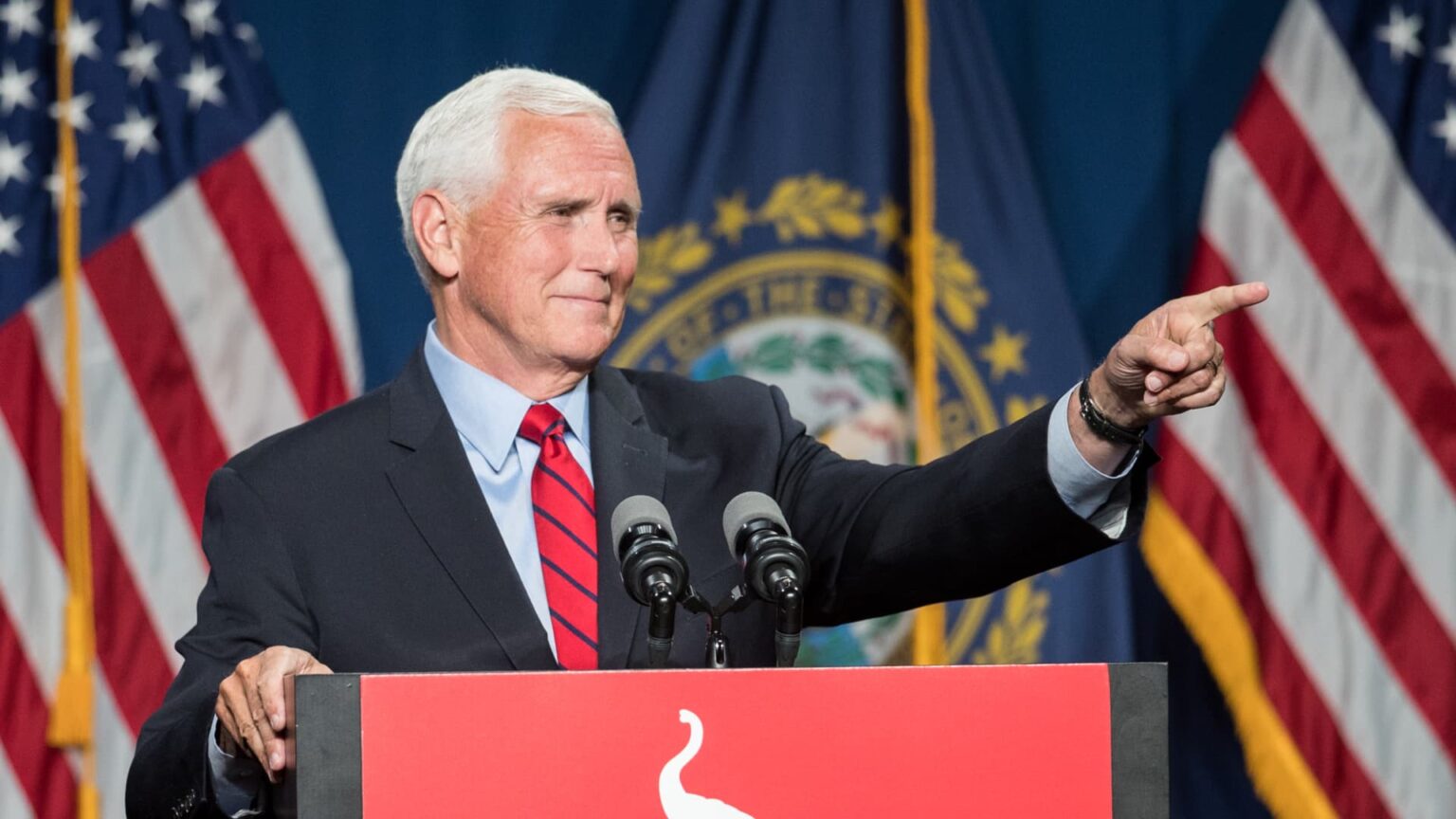Former Vice President Mike Pence filed paperwork Monday to run for president in 2024, Federal Election Commission documents showed.
Pence, who served under former President Donald Trump, is expected to personally launch his bid for the GOP nomination on Wednesday. A spokesman for Pence confirmed the FEC filings.
The former vice president is expected to bring a more traditionally conservative voice to a primary field that has been drowned out by the populist preachings of Trump, the current front-runner, and Florida Gov. Ron DeSantis.
Pence, who turns 64 on Wednesday, served more than a decade in the U.S. House and one term as governor of Indiana, establishing himself as a staunch conservative before becoming Trump’s running mate in his winning 2016 presidential campaign.
But he faces some stiff headwinds in the race to the White House as he fights to win the support of a party that remains largely loyal to Trump.
His poll numbers are better than some of his competitors’ but have mostly hovered around the low- to mid-single digits in surveys of the prospective primary field.
His campaign is booting up weeks, if not months, later than those of many of his rivals, including Trump and DeSantis, who are leading the pack in polls.
And it’s unclear if Pence will be able to generate a big enough war chest to be able to meaningfully compete with other contenders’ operations, some of which were flush with cash from the outset or poised to benefit from massive spending from allied super PACs. One such group backing DeSantis, for instance, expects to wield a $200 million operating budget.
Perhaps one of Pence’s biggest hurdles: Walking the fine line of touting his accomplishments in the “Trump-Pence administration,” as he often calls it, while distinguishing himself from his former boss.
Pence in recent months has said that the executive branch under Trump and Pence could have done more to rein in spending. He has also been one of the few politicians of either party to regularly call for changes to Social Security and Medicare, voluntarily touching the so-called third rail of politics that most of his opponents have avoided.
Pence’s once-close alliance with Trump imploded after he refused to aid the then-president’s efforts to overturn his loss to President Joe Biden after the 2020 election.
Trump, both publicly and privately, had heaped pressure on Pence to reject key Electoral College votes for Biden while Pence presided over a joint session of Congress on Jan. 6, 2021. Biden had won 306 electoral votes to Trump’s 232 — a fact cemented by the Electoral College weeks earlier — and federal lawmakers had gathered at the U.S. Capitol building to confirm Biden’s victory in what was historically a ceremonial event.
Pence said just before that gathering began that he did not have the constitutional authority to unilaterally decide which electoral votes should or should not be counted. That announcement infuriated many of Trump’s supporters who had gathered at a nearby rally to hear the then-president echo unfounded and debunked conspiracy theories about widespread election fraud.
Many of those rallygoers were among the thousands of Trump’s backers who then stormed the Capitol, forcing Pence and members of Congress to flee the House and Senate chambers. Some of the rioters chanted “Hang Mike Pence” as they marched through the building.
As the riot unfolded, Trump tweeted that Pence “didn’t have the courage to do what should have been done.”
Trump has since defended those chanters who called to hang Pence, and he has doubled down on his false claim that Pence “could have overturned” the 2020 election.
Pence has stood by his actions on the day of the Capitol riot, while mostly avoiding explicitly criticizing Trump. He has said Trump was “wrong” to believe the vice president could overthrow the election, but has cast doubt on whether Trump committed a crime related to those actions. Pence also vowed to fight a grand jury subpoena for his testimony in a special counsel investigation into whether the efforts to undo the 2020 election results were unlawful.
Pence’s break with Trump over the 2020 election nevertheless made him an enemy of some Republicans. In a recent survey from Quinnipiac University, 35% of Republican registered voters said they held an unfavorable opinion of Pence — a significantly higher figure than Trump (11%), DeSantis (5%) and former South Carolina Gov. Nikki Haley (12%) received.
While his standing in the Republican mainstream seemed to wane following the Capitol riot and the 2022 midterms, Trump remains the Republican to beat in the 2024 primary. Polls show him leading the pack of potential primary challengers and keeping a firm grip on a base of voters that forms a sizable chunk of the GOP.
Pence has taken a few oblique jabs at his former boss in the run-up to his campaign launch, predicting that there will be “better candidates” than Trump in 2024.
He also suggested that Trump deserved blame for the GOP’s underperformance in the 2022 midterms. “Our candidates that were focused on the past, particularly on relitigating the last election, did not do well,” Pence told CNBC in an apparent reference to Trump, who has made his denial of the 2020 election results a central theme of his 2024 campaign.
Read the full article here













